#dedicated frontend developers
Explore tagged Tumblr posts
Text
What Skills Make a Frontend Developer Stand Out in 2025?

The changing technological realm depends extensively on frontend development for the creation of interactive user-centered digital interfaces with optimal performance metrics. Frontend development roles will face increased complexity and demanding requirements during the next decade leading up to 2025. Frontend developers dedicated to business operations create smooth interfaces which combine attractive design with high-performance capabilities. What abilities will distinguish these professionals during the upcoming years? This blog examines the essential competencies which frontend developers must possess to excel in 2025 through industry research and statistical data and emerging trends.
The Evolving Role of Frontend Developers
The practice of frontend development has transformed significantly beyond its initial foundation of HTML and CSS and JavaScript. Frontend developers now need to demonstrate versatility alongside creativity and technical expertise for their role. As intermediaries between design and functionality frontend developers deliver enjoyable user experiences to website and application users.
The global developer population will grow to 28.7 million by 2024 according to Statista and frontend developers will make up a substantial segment of this total. Frontend developer demand keeps increasing because competition between professionals continues to escalate. The present market demands that developers build their skills and adopt new technologies together with industry trends.
Struggling to create a seamless and engaging user experience? Hire dedicated frontend developers to craft exceptional user experiences that captivate and convert.
Skills of Frontend Developers
Frontend Developers who want to excel in 2025 will need specific skills which set them apart from their competitors.
1. Proficiency in Modern JavaScript Frameworks
Frontend development relies on JavaScript as its core foundation so developers must master frameworks such as React, Angular and Vue.js to succeed. These frameworks deliver an efficient method for developers to create applications that are dynamic and responsive and scalable.
- React: The frontend development landscape remains dominated by React which Facebook maintains. The combination of component-based architecture and virtual DOM functions drive developer preference towards this system.
- Angular: Google developed the professional Angular framework which enables developers to create intricate applications. In enterprise-level projects application developers appreciate two-way data binding combined with dependency injection through Angular.
- Vue.js: Vue.js attracts developers who want a flexible framework with simple design because of its lightweight nature.
Frontend developers who master these frameworks to build efficient, maintainable code will experience high market demand in 2025.
2. Responsive and Adaptive Design Expertise
The variety of devices and display sizes has made responsive design an absolute requirement for modern development. Frontend developers need to guarantee that websites and applications present perfect visual experiences and operational functionality on desktops as well as tablets and smartphones.
- Research from Google shows that mobile users avoid sites which provide a difficult experience because 61% will not return to the site while 40% switch to competitor websites.
Developers need to implement adaptive design which modifies user experiences through device capability and contextual understanding.
The creation of responsive and adaptive designs requires developers to master both Bootstrap and Tailwind CSS frameworks and to understand media queries and flexible grid systems deeply.
3. Cross-Browser Compatibility
Web standards have improved but maintaining consistent functionality across different browsers continues to be a difficult problem. Frontend developers need to guarantee their code functions properly throughout Chrome Firefox Safari and Edge browser platforms.
Frontend developers can use BrowserStack and Can I Use to check and fix their code when testing across multiple browsers. Furthermore knowledge of polyfills and fallbacks enables developers to recover older browser functionality. Frontend developers who achieve flawless browser compatibility in 2025 will gain a market advantage.
4. Performance Optimization
Website performance stands as an essential element which determines both user satisfaction levels and search engine placement positions. Google reports that mobile users will leave a page if its load time exceeds 3 seconds according to their data on the Think with Google website.
Frontend developers need to optimize their programming code for high performance to achieve quick page load speeds together with smooth user interactions. Key strategies include:
Frontend developers should apply file compression techniques to CSS and JavaScript together with image file size reduction.
The implementation of lazy loading techniques should be used for images together with other assets.
The implementation of browser caching and content delivery networks (CDNs) delivers performance improvements to web applications.
Frontend developers who make performance enhancements will create superior user experiences leading to increased conversion rates.
5. Accessibility
Web accessibility is both a legal requirement and a moral obligation because it has evolved from a niche concern. Frontend developers need to design applications which provide complete accessibility to users who have disabilities.
- The Web Content Accessibility Guidelines (WCAG) offer developers a framework to build accessible web content.
Implementing semantic HTML combined with image alternative text and keyboard accessibility form the core techniques for accessibility.
By 2025 developers who prioritize accessibility will achieve two benefits: full regulatory compliance and wider audience reach.
Is your website’s user experience falling short of expectations? Partner with the best frontend development company in India to create intuitive, high-performing, and visually engaging web experiences.
6. Progressive Web Apps (PWAs)
Progressive Web Apps (PWAs) unite web and mobile app features through their ability to operate offline while delivering push alerts and quick performance. The technology shows growing adoption rates particularly in areas where internet access remains restricted.
- According to PWA Stats, boost conversion rates by 52% and lower bounce rates by 42%.
Frontend developers need to master service workers along with manifest files and all PWA technology requirements.
Businesses that want to deliver app-like web experiences will actively search for developers who specialize in creating Progressive Web Apps.
7. Version Control and Collaboration Tools
A collaborative development environment depends heavily on version control systems such as Git for its success. Frontend developers need complete mastery of Git tools to track code changes while managing branches and performing code merges.
The collaborative tools GitHub, GitLab and Bitbucket enable developers to review code while facilitating team work.
Knowledge of platforms Jira alongside Trello can help developers excel at their projects.
By 2025 organizations will place priority on developers who demonstrate expertise in team collaboration and codebase administration.
8. API Integration and Backend Basics
Frontend developers who concentrate on user interface development must now understand backend programming fundamentals more than ever before. A developer must know how to integrate RESTful APIs and GraphQL alongside frontend application integration.
- The Postman 2023 State of the API Report reveals that 89% of developers identify APIs as essential for their organization's achievements. When developers master Node.js and Express they become more versatile in their skills.
Frontend developers who demonstrate expertise in both frontend and backend functions will command premium value in the development market of 2025.
9. Testing and Debugging Skills
Frontend development requires quality assurance as an essential fundamental component. To guarantee their code remains bug-free developers need proficiency in writing unit tests and integration tests as well as end-to-end tests.
The frontend testing tools Jest and Cypress and Selenium have become standard components in application testing practice.
The ability to debug software requires developers to master both browser developer tools and error tracking software applications.
Developers who place testing alongside debugging work will create applications which are both robust and reliable.
10. Soft Skills and Continuous Learning
Technical skills by themselves will not be enough to make professionals stand out during 2025. Frontend developers need to develop both soft skills which include communication abilities and problem-solving skills and teamwork capabilities.
To succeed frontend developers must excel at explaining complex technical matters to professional groups who lack technical background. Engineers who embrace growth mindsets together with permanent interest in learning new things will stay current with evolving technology and developments.The Workplace Learning Report from LinkedIn shows that 89% of L&D professionals believe actively developing employee skills remains vital for working through future workplace challenges.
Facing challenges in integrating different technologies in your application? Hire Dedicated Developers to ensure seamless connectivity and optimal performance across technologies.
The Future of Frontend Development: Trends to Watch
As we approach 2025, several trends are shaping the future of frontend development:
1. AI and Machine Learning Integration: AI tools ChatGPT and GitHub Copilot transform developer code-writing capabilities through their artificial intelligence capabilities.
2. WebAssembly (Wasm): Through this technology, developers can achieve performance gains since it lets them run C++ and Rust code directly on web browsers.
3. Motion UI and Micro-Interactions: Enhancing user engagement through subtle animations and interactive elements.
4. Voice Search Optimization: Voice search optimization will become essential because voice assistants show increasing adoption rates.
5. Blockchain Integration: The growing popularity of decentralized applications (dApps) demands that front-end developers develop blockchain technology knowledge.
Conclusion
Frontend developers face an increasingly complex and dynamic work environment than they have ever experienced. The future of 2025 will see dedicated frontend developers in high demand because organizations require innovative digital interfaces that focus on user needs. Success in this competitive market demands that developers become experts in multiple skills which include modern JavaScript frameworks alongside responsive design techniques and performance optimization and accessibility practices.
Frontend developers who align their skills with industry trends and undertake active learning and improve technical and interpersonal capabilities make themselves critical members of the modern tech landscape. The upcoming era will reward those developers who embrace adaptation and innovation while delivering extraordinary value to users together with businesses.
0 notes
Text
Hire Expert ReactJS, AngularJS, DevOps, VueJS, and AI Developers | Qono Tech
In today's digital landscape, the demand for specialized developers is skyrocketing. Whether you're building a dynamic web application or enhancing your AI-driven systems, Qono Tech offers access to a diverse pool of highly qualified developers. Our hiring process ensures seamless integration with your team, helping you scale efficiently while staying competitive. Here's a closer look at the types of developers you can hire:
1. ReactJS Developers
ReactJS is known for building highly interactive and scalable web applications. Our developers specialize in React hooks, Redux, and creating seamless Single Page Applications (SPAs) to deliver dynamic and smooth user experiences.
Hire ReactJS Developer: Get access to expert ReactJS developers at Qono Tech who can build custom applications tailored to your business needs.
2. AngularJS Developers
Our AngularJS developers are proficient in developing responsive web applications, leveraging RESTful API integration for data-driven solutions, and optimizing your applications for performance and scalability. They specialize in testing tools like Protractor and Karma for reliable code.
Hire AngularJS Developer: Let our experienced AngularJS developers create robust, user-friendly web applications for your business.
3. DevOps Developers
DevOps developers play a critical role in automating and improving the CI/CD pipeline, managing cloud infrastructure with Docker and Kubernetes, and enhancing overall efficiency. They ensure smooth deployment processes and continuous integration to keep your projects agile.
Hire DevOps Developer: Accelerate your development cycle by hiring skilled DevOps developers from Qono Tech, who can streamline your operations.
4. VueJS Developers
VueJS developers at Qono Tech excel in Vue Router, Vuex, and Nuxt.js, creating high-performing, scalable applications with a focus on lightweight architecture and enhanced user experiences.
Hire VueJS Developer: Scale your project effortlessly with VueJS developers who specialize in creating fast, responsive, and highly interactive web applications.
5. AI Developers
Our AI developers are experts in building machine learning models, NLP tools, and developing intelligent systems that leverage data analytics for smarter decision-making. From AI-powered chatbots to predictive analytics, we have the right expertise to power your business.
Hire AI Developer: Elevate your business by hiring AI developers who can implement advanced AI solutions, tailored to your specific needs.
Qono Tech makes it easy to hire ReactJS, AngularJS, VueJS, DevOps, and AI developers, offering tailored solutions with flexible hiring models to fit your project requirements. Contact us today!
#hire developers in india#hire developers from india#hire developers#hire dedicated developers#hire frontend developers
0 notes
Text
The question of whether you should handle the frontend or backend part of a web application first may sound pretty easy. Nevertheless, answering it may require more effort than you think and often depends on the project’s purpose and requirements. Various starting conditions don’t allow developers to follow the same pattern in all possible scenarios and create too many ifs and buts.
#frontend#frontend developer#hire dedicated frontend developers#backend#outsourcing#software development#web development#staff augmentation#custom software development#it staff augmentation#custom software solutions#it staffing company#it staff offshoring#custom software
0 notes
Text
The Impact of IT Staff Augmentation on Remote Software Development
Recently, there has been a significant shift in how hiring of dedicated remote software developers emerges, with more people working remotely. This shift is occurring rapidly as a result of improved technology and a diverse workforce. Many businesses had turned to remote work since they had no other options. In this context, part time remote software developer has become essential for businesses seeking to manage the challenges and profit on the opportunities associated with remote software development.
#dedicated development team#find a developer#hire dedicated developer#hire developer#hire frontend developer
0 notes
Text
Are you looking to enhance your user experience and make your website stand out from the crowd? If so, you might want to consider investing in custom frontend development Service and hiring a skilled React JS developer. In this article, we’ll discuss what frontend development is, why it matters, and how React JS Development can help take your user experience to the next level.
#ahextechnologies#frontend developer#frontend development#frontend development services#frontend development company#hire frontend developers#frontend development companies#hire dedicated frontend developers#frontend frameworks#frontend technologies
0 notes
Text
#Hire Frontend Developers#Hire Web Developers#Hire Web App Developers#Hire Web Designers#Hire Website Designers#Web Designers for Hire#hire dedicated developers#Hire Website Developer#Hire Development Team#Hire HTML5 Developers#HTML5 Developers for Hire
0 notes
Text
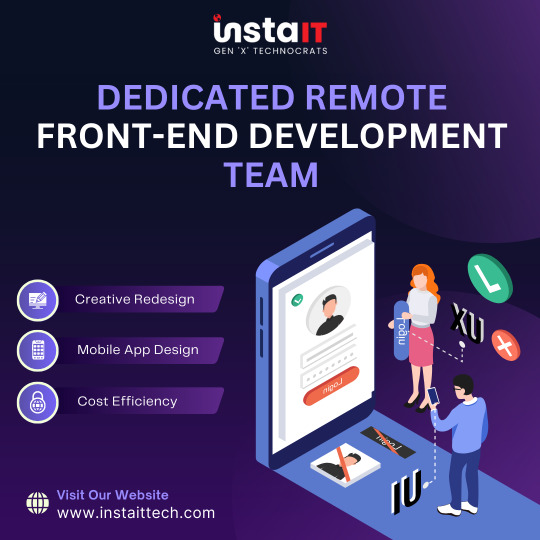
Dedicated Remote Front-end Development Team
Hire Dedicated Remote Front-end Development Team from India’s leading front-end development company - InstaIT. InstaIT is a well known name in the front-end development world. We help you to hire remote developers to take care of your mission critical projects. Our developers are able to cover the whole Software development Life Cycle (SDLC) from analyzing requirements till continuous integration and deployment.
Tips to Hire Frontend Developers:
Identity The Specific Skills
Use Online Resource
Ask About Their Experience
Schedule an Interview
#dedicated remote front-end development team#dedicated front-end developers#Hire expert front-end web and mobile developers#Hire Dedicated Front-end Developers In India#hire dedicated front-end developers#Hire Dedicated Front-end Web Developers In India#Hire a Dedicated Front-end Development Team#Hire Frontend programmers#hire front-end developers#Hire Dedicated Remote Developers#Hire front-end web developer#Remote Front-end Developer#Hire Remote Front-end Developer#Hire Dedicated Developers in India & USA#Hire Remote Front-end developers#Dedicated Remote Development Team
0 notes
Text
In the near future one hacker may be able to unleash 20 zero-day attacks on different systems across the world all at once. Polymorphic malware could rampage across a codebase, using a bespoke generative AI system to rewrite itself as it learns and adapts. Armies of script kiddies could use purpose-built LLMs to unleash a torrent of malicious code at the push of a button.
Case in point: as of this writing, an AI system is sitting at the top of several leaderboards on HackerOne—an enterprise bug bounty system. The AI is XBOW, a system aimed at whitehat pentesters that “autonomously finds and exploits vulnerabilities in 75 percent of web benchmarks,” according to the company’s website.
AI-assisted hackers are a major fear in the cybersecurity industry, even if their potential hasn’t quite been realized yet. “I compare it to being on an emergency landing on an aircraft where it’s like ‘brace, brace, brace’ but we still have yet to impact anything,” Hayden Smith, the cofounder of security company Hunted Labs, tells WIRED. “We’re still waiting to have that mass event.”
Generative AI has made it easier for anyone to code. The LLMs improve every day, new models spit out more efficient code, and companies like Microsoft say they’re using AI agents to help write their codebase. Anyone can spit out a Python script using ChatGPT now, and vibe coding—asking an AI to write code for you, even if you don’t have much of an idea how to do it yourself—is popular; but there’s also vibe hacking.
“We’re going to see vibe hacking. And people without previous knowledge or deep knowledge will be able to tell AI what it wants to create and be able to go ahead and get that problem solved,” Katie Moussouris, the founder and CEO of Luta Security, tells WIRED.
Vibe hacking frontends have existed since 2023. Back then, a purpose-built LLM for generating malicious code called WormGPT spread on Discord groups, Telegram servers, and darknet forums. When security professionals and the media discovered it, its creators pulled the plug.
WormGPT faded away, but other services that billed themselves as blackhat LLMs, like FraudGPT, replaced it. But WormGPT’s successors had problems. As security firm Abnormal AI notes, many of these apps may have just been jailbroken versions of ChatGPT with some extra code to make them appear as if they were a stand-alone product.
Better then, if you’re a bad actor, to just go to the source. ChatGPT, Gemini, and Claude are easily jailbroken. Most LLMs have guard rails that prevent them from generating malicious code, but there are whole communities online dedicated to bypassing those guardrails. Anthropic even offers a bug bounty to people who discover new ones in Claude.
“It’s very important to us that we develop our models safely,” an OpenAI spokesperson tells WIRED. “We take steps to reduce the risk of malicious use, and we’re continually improving safeguards to make our models more robust against exploits like jailbreaks. For example, you can read our research and approach to jailbreaks in the GPT-4.5 system card, or in the OpenAI o3 and o4-mini system card.”
Google did not respond to a request for comment.
In 2023, security researchers at Trend Micro got ChatGPT to generate malicious code by prompting it into the role of a security researcher and pentester. ChatGPT would then happily generate PowerShell scripts based on databases of malicious code.
“You can use it to create malware,” Moussouris says. “The easiest way to get around those safeguards put in place by the makers of the AI models is to say that you’re competing in a capture-the-flag exercise, and it will happily generate malicious code for you.”
Unsophisticated actors like script kiddies are an age-old problem in the world of cybersecurity, and AI may well amplify their profile. “It lowers the barrier to entry to cybercrime,” Hayley Benedict, a Cyber Intelligence Analyst at RANE, tells WIRED.
But, she says, the real threat may come from established hacking groups who will use AI to further enhance their already fearsome abilities.
“It’s the hackers that already have the capabilities and already have these operations,” she says. “It’s being able to drastically scale up these cybercriminal operations, and they can create the malicious code a lot faster.”
Moussouris agrees. “The acceleration is what is going to make it extremely difficult to control,” she says.
Hunted Labs’ Smith also says that the real threat of AI-generated code is in the hands of someone who already knows the code in and out who uses it to scale up an attack. “When you’re working with someone who has deep experience and you combine that with, ‘Hey, I can do things a lot faster that otherwise would have taken me a couple days or three days, and now it takes me 30 minutes.’ That's a really interesting and dynamic part of the situation,” he says.
According to Smith, an experienced hacker could design a system that defeats multiple security protections and learns as it goes. The malicious bit of code would rewrite its malicious payload as it learns on the fly. “That would be completely insane and difficult to triage,” he says.
Smith imagines a world where 20 zero-day events all happen at the same time. “That makes it a little bit more scary,” he says.
Moussouris says that the tools to make that kind of attack a reality exist now. “They are good enough in the hands of a good enough operator,” she says, but AI is not quite good enough yet for an inexperienced hacker to operate hands-off.
“We’re not quite there in terms of AI being able to fully take over the function of a human in offensive security,” she says.
The primal fear that chatbot code sparks is that anyone will be able to do it, but the reality is that a sophisticated actor with deep knowledge of existing code is much more frightening. XBOW may be the closest thing to an autonomous “AI hacker” that exists in the wild, and it’s the creation of a team of more than 20 skilled people whose previous work experience includes GitHub, Microsoft, and a half a dozen assorted security companies.
It also points to another truth. “The best defense against a bad guy with AI is a good guy with AI,” Benedict says.
For Moussouris, the use of AI by both blackhats and whitehats is just the next evolution of a cybersecurity arms race she’s watched unfold over 30 years. “It went from: ‘I’m going to perform this hack manually or create my own custom exploit,’ to, ‘I’m going to create a tool that anyone can run and perform some of these checks automatically,’” she says.
“AI is just another tool in the toolbox, and those who do know how to steer it appropriately now are going to be the ones that make those vibey frontends that anyone could use.”
9 notes
·
View notes
Text
Crafting Web Applications For Businesses Which are Responsive,Secure and Scalable.
Hello, Readers!
I’m Nehal Patil, a passionate freelance web developer dedicated to building powerful web applications that solve real-world problems. With a strong command over Spring Boot, React.js, Bootstrap, and MySQL, I specialize in crafting web apps that are not only responsive but also secure, scalable, and production-ready.
Why I Started Freelancing
After gaining experience in full-stack development and completing several personal and academic projects, I realized that I enjoy building things that people actually use. Freelancing allows me to work closely with clients, understand their unique challenges, and deliver custom web solutions that drive impact.
What I Do
I build full-fledged web applications from the ground up. Whether it's a startup MVP, a business dashboard, or an e-commerce platform, I ensure every project meets the following standards:
Responsive: Works seamlessly on mobile, tablet, and desktop.
Secure: Built with best practices to prevent common vulnerabilities.
Scalable: Designed to handle growth—be it users, data, or features.
Maintainable: Clean, modular code that’s easy to understand and extend.
My Tech Stack
I work with a powerful tech stack that ensures modern performance and flexibility:
Frontend: React.js + Bootstrap for sleek, dynamic, and responsive UI
Backend: Spring Boot for robust, production-level REST APIs
Database: MySQL for reliable and structured data management
Bonus: Integration, deployment support, and future-proof architecture
What’s Next?
This blog marks the start of my journey to share insights, tutorials, and case studies from my freelance experiences. Whether you're a business owner looking for a web solution or a fellow developer curious about my workflow—I invite you to follow along!
If you're looking for a developer who can turn your idea into a scalable, secure, and responsive web app, feel free to connect with me.
Thanks for reading, and stay tuned!
2 notes
·
View notes
Text
What is Mern stack And Its importance? Before that I will Tell you the best institute for Mern stack course in Chandigarh.

What is Mern stack?
MERN Stack is a popular JavaScript-based technology stack used for building full-stack web applications. It consists of four key technologies:
MongoDB: A NoSQL database that stores data in a flexible, JSON-like format.
Express.js: A lightweight and fast backend framework for Node.js.
React.js: A front-end JavaScript library for building user interfaces.
Node.js: A runtime environment that allows JavaScript to run on the server side.
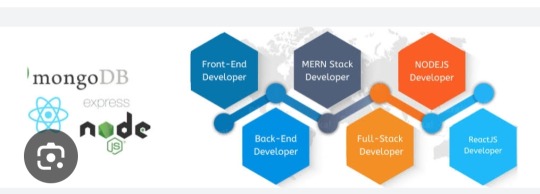
Importance of Mern Stack :
Full-Stack JavaScript – Uses JavaScript for frontend and backend, simplifying development.
High Performance – Node.js ensures fast, scalable applications.
Cost-Effective – Open-source, reducing development costs.
Rapid Development – React’s reusable components speed up UI building.
Flexibility – Suitable for web apps, SPAs, eCommerce, and real-time applications.
Scalability – MongoDB handles large data efficiently.
Strong Community Support – Large developer base ensures continuous updates and support.
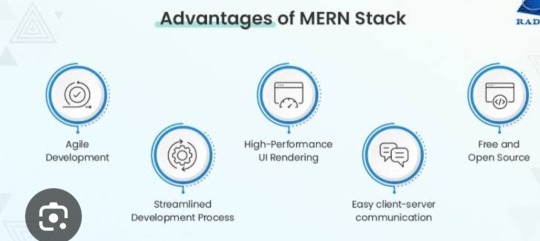
Now i will tell you the best institute for Mern stack course in Chandigarh .
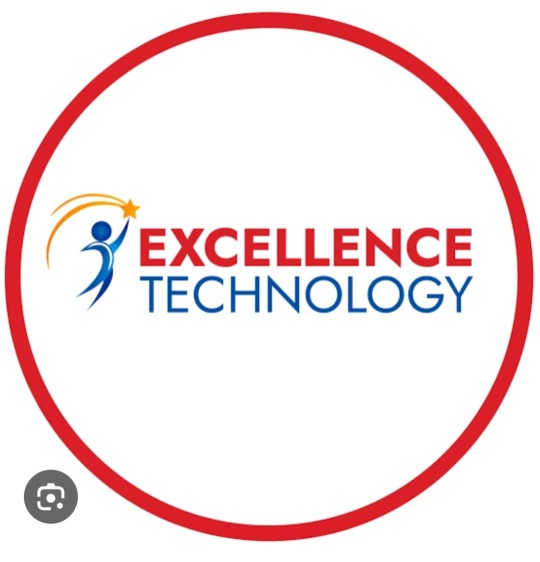
Excellence Technology is a leading EdTech (Educational technology) company dedicated to empowering individuals with cutting -edge IT skills and bridging the gap between education and industry demands. Specializing in IT training ,carrer development, and placement assistance ,the company equipts learners with the technical expertise and practical experience needed to thrive in today's competitive tech landscape. We provide IT courses like python ,Full stack Development, Web Design ,Graphic Design and Digital Marketing.
Contact Us for more details: 93177-88822
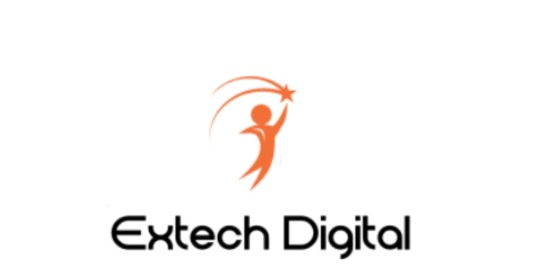
Extech Digital is a leading software development company dedicated to empowering individuals with cutting -edge IT skills and bridging the gap between education and industry demands. Specializing in IT training ,carrer development, and placement assistance ,the company equipt learners with the technical expertise and practical experience needed to thrive in today's competitive tech landscape. e provide IT courses like Python ,Full stack Development, Web Design ,Graphic Design and Digital Marketing.
Contact Us for more details: 93177-88822

Excellence academy is a leading software development company dedicated to empowering individual with cutting edge IT skills and bridging the gap between education and industry demands.specializing in IT training, career development, and placement assistance, the company equits learners with the technical expertise and practical experience needed to thrive in today's landscape. We provide IT courses like python, full stack development,Web design, and Digital marketing.
Contact Us for more details: 93177-88822
About Author
Nikita Thakur
Mern stack AI Developer/ 2+ years of experience
Excellence technology
Professional summary
Nikita thakur is a skilled MERN Stack AI Developer with over 2 years of experience at Excellence Technology. Proficient in MongoDB, Express.js, React.js, and Node.js, she integrates AI solutions to build scalable, high-performance web applications. Nikita excels in developing innovative solutions, enhancing user experiences, and driving business growth through technology.
2 notes
·
View notes
Text
Understanding the Difference Between a Website and a Web Page: A Complete Guide
Understanding the Difference Between a Website and a Web Page: A Complete Guide
In today’s digital landscape, terms like website and web page are used interchangeably, often causing confusion among businesses and individuals seeking an online presence. However, as a business owner or a digital marketer, understanding the difference is essential for creating an impactful online strategy.
At KSoft Technologies, where we specialize in website development, digital marketing, and SEO services, we often encounter this question from clients. This guide not only simplifies the distinction between a website and a web page but also explores their technical aspects and how they align with your business goals.
What is a Website?
A website is a collection of interlinked web pages hosted under a single domain name, designed to serve a specific purpose. Think of it as a digital storefront or an online hub that provides a comprehensive experience to users. Websites can vary significantly based on their type and functionality:
Corporate Websites Ideal for businesses aiming to showcase their products, services, and achievements. For example, the KSoft Technologies website highlights our expertise in areas like SEO, app development, and web design.
E-Commerce Websites Platforms like Amazon or Shopify allow businesses to sell products directly to customers. These websites integrate payment gateways, inventory management systems, and customer service functionalities.
Portfolio Websites Focused on showcasing individual or business achievements, these websites are ideal for freelancers or creative professionals.
Landing Pages Dedicated pages within a website that focus on lead generation and conversions, often used in digital marketing campaigns.
Blogs and Forums Content-centric websites aimed at providing information, engaging with communities, or building authority in a niche.
Technical Structure of a Website
A website comprises:
Domain Name: The unique address users type in to access the site (e.g., ksofttechnologies.com).
Hosting Server: Where all the data and files of the website are stored.
Content Management System (CMS): Tools like WordPress or Joomla that allow users to create and manage content.
Backend and Frontend: The backend involves server-side scripting (e.g., PHP, Python), while the frontend includes design elements (e.g., HTML, CSS, JavaScript).
What is a Web Page?
A web page is a single document within a website, identifiable by its unique URL. For example, on ksofttechnologies.com, the “Contact Us” page or “Services” page is a web page.
Types of Web Pages
Static Pages Content remains the same unless manually updated. They’re ideal for information like company profiles or mission statements.
Dynamic Pages Content is fetched from a database and changes based on user interaction. Examples include dashboards or search results pages.
Landing Pages Specifically designed for marketing campaigns, focusing on a single product, service, or call to action.
Blog Posts Individual articles or write-ups focused on specific topics within a blog section of a website.
Technical Structure of a Web Page
Each web page includes:
URL Structure: For example, https://ksofttechnologies.com/services.
HTML Markup: Defines the structure and content of the page.
CSS and JavaScript: For styling and functionality.
Metadata: Helps search engines understand the page content.
Key Differences Between a Website and a Web Page
Definition
Website: A collection of multiple interlinked web pages.
Web Page: A single document within a website.
Scope
Website: Broader; provides comprehensive information or services.
Web Page: Narrower; focuses on a specific topic or purpose.
URL
Website: Main domain name (e.g., ksofttechnologies.com).
Web Page: A subset URL (e.g., /services, /about-us).
Interactivity
Website: Enables complex user interactions.
Web Page: May have limited or single-point interactions.
Purpose
Website: Serves as the entire digital presence.
Web Page: Addresses a specific intent or question.
How Websites and Web Pages Work Together
To draw an analogy, a website is like a library, while web pages are the individual books or chapters within it. Each web page serves a specific purpose and contributes to the overall functionality of the website.
Example from KSoft Technologies
Website Level: Visitors land on ksofttechnologies.com, where they see an overview of our services like web development, app design, and SEO consulting.
Web Page Level: When they click on "Digital Marketing," they are directed to a dedicated page detailing our strategies, success stories, and packages.
Why Understanding the Difference Matters
For businesses, distinguishing between a website and a web page is crucial for:
Better SEO Strategy Search engines like Google evaluate websites and individual web pages differently. Optimizing individual pages for keywords (e.g., “website development services”) improves rankings and traffic.
User Experience Creating well-structured websites and easy-to-navigate web pages ensures a seamless user journey.
Content Strategy Knowing the role of each web page within your website helps in creating targeted and engaging content.
SEO Best Practices for Websites and Web Pages
Keyword Optimization Include relevant keywords like “website development,” “SEO services,” and “digital marketing agency” in titles, headings, and content.
Internal Linking Link related web pages within your website to improve navigation and reduce bounce rates.
Responsive Design Ensure your website and all web pages are optimized for mobile devices.
Page Load Speed Use tools like Google PageSpeed Insights to identify and fix issues.
Content Quality Provide valuable and actionable content for visitors, such as this guide explaining technical concepts.
How KSoft Technologies Can Help
At KSoft Technologies, we understand that your website is the cornerstone of your digital presence. Whether you need a user-friendly corporate website, high-converting e-commerce platform, or optimized web pages for SEO, our team of experts is here to help.
Our services include:
Website Design and Development: Tailored to your brand and business goals.
SEO Services: Ensuring your web pages rank high for targeted keywords.
Content Strategy: Helping you create engaging, keyword-rich content for better rankings and user retention.
Conclusion
While a website is the broader digital presence, web pages are its building blocks. Understanding the distinction between the two helps in planning and executing a robust online strategy. By leveraging the expertise of KSoft Technologies, you can ensure that your website and web pages work seamlessly to drive traffic, generate leads, and grow your business.
#ecommerce#web design#webpage#website#branding#web development#erp software#adobe#seo services#google ads
3 notes
·
View notes
Text
Getting Started with Full-Stack Web Development: Obstacles and Opportunities
Embarking on the journey to becoming a full-stack web developer offers a blend of exhilarating challenges and rewarding accomplishments. In this guide, we'll explore the intricacies of mastering full-stack development, delving into the obstacles you may face along the way and the triumphs that await those who persevere.
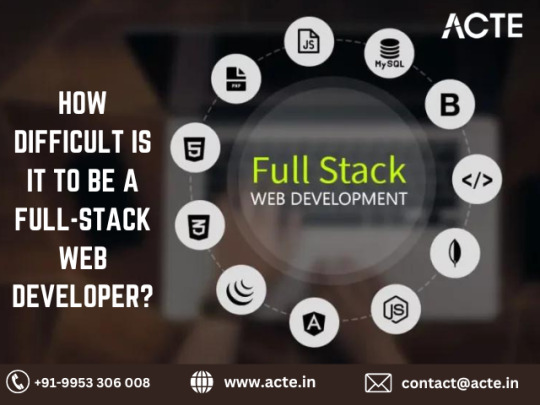
Introduction
Mastering full-stack web development is akin to embarking on a thrilling adventure—one that promises countless opportunities for growth, innovation, and professional fulfillment. However, the road to proficiency is not without its hurdles. In this blog, we'll navigate through the challenges aspiring full-stack developers may encounter, as well as the triumphs that come with overcoming them.
1. Diverse Skill Set
Full-stack web development demands proficiency in a diverse range of skills, spanning from frontend technologies like HTML, CSS, and JavaScript to backend languages such as Python, Ruby, or Node.js. Additionally, expertise in databases, server management, and deployment processes is crucial. Acquiring mastery in these areas requires dedication, time, and a continuous commitment to learning and adaptation.
2. Ever-Evolving Landscape
The realm of web development is in a perpetual state of evolution, with new frameworks, libraries, and tools emerging at a rapid pace. Keeping pace with these advancements and constantly updating your skill set is imperative to remain competitive in the industry. Allocate time to explore emerging technologies, enroll in online courses, and engage with the developer community to stay ahead of the curve.
3. Complexity of Projects
Full-stack developers often tackle intricate projects that necessitate the integration of various technologies and components. Managing the intricacies of these projects, troubleshooting issues, and ensuring seamless interaction between frontend and backend systems can be daunting. Nonetheless, overcoming these challenges cultivates invaluable problem-solving skills and deepens your comprehension of web development principles.
4. In-Depth Understanding
To excel as a full-stack developer, a profound understanding of programming concepts, algorithms, and data structures is indispensable. Mastery of these foundational principles empowers you to write concise, efficient code and tackle complex technical challenges with confidence. Dedicate time to delve into computer science fundamentals and engage in coding exercises to fortify your expertise.
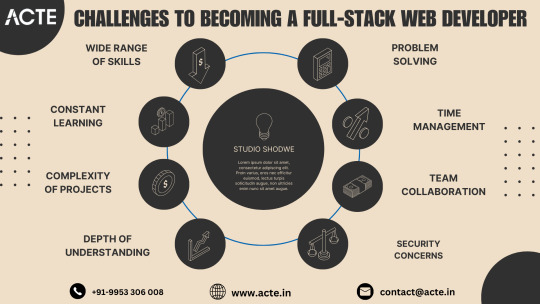
5. Effective Problem Solving
Effective problem-solving is a hallmark of successful full-stack developers. Debugging code, identifying bottlenecks, and optimizing performance demand astute analytical skills and a systematic approach. Collaborating with peers, leveraging online resources, and seeking mentorship can facilitate the navigation of complex technical hurdles and yield effective solutions.
6. Strategic Time Management
Balancing multiple responsibilities, including frontend and backend development, database management, and project deployment, necessitates adept time management skills. Prioritize tasks, establish realistic timelines, and leverage productivity tools to streamline your workflow and maximize productivity. Reserve time for ongoing learning and professional development to continually enhance your skill set.
7. Cultivating Team Collaboration
Full-stack developers often collaborate with interdisciplinary teams, comprising designers, frontend developers, backend developers, and other stakeholders. Effective communication, teamwork, and collaboration are vital for project success. Foster strong interpersonal relationships, actively contribute in team settings, and cultivate a culture of open communication and collaboration within your team.
8. Prioritizing Security
Understanding security best practices and implementing robust security measures is paramount in web development. Full-stack developers must remain vigilant in identifying and mitigating security vulnerabilities to safeguard sensitive data and uphold the integrity of web applications. Stay informed about prevalent security threats, adhere to industry best practices, and consistently update your knowledge to proactively address emerging risks.
Conclusion
Embarking on the journey to becoming a full-stack web developer is a thrilling endeavor marked by challenges and triumphs. By embracing the obstacles, refining your skills, and maintaining a steadfast commitment to learning and growth, you can unlock a realm of opportunities and embark on a gratifying career in web development. Remember, each challenge surmounted brings you closer to mastery, and the journey itself is as enriching as the destination.
#full stack developer#education#information#full stack web development#web development#front end development#full stack developer course#technology#backend
2 notes
·
View notes
Text

At Wizi Technology Services Pvt Ltd, we think it's important to notice and celebrate the special moments of each team member. Today, it's on you Ajay KV, our Frontend Developer! 🎉 🎂 As we celebrate your birthday, we want to express our gratitude for your hard work and dedication. Your skills and creativity continue to shape the future of our projects, and we are fortunate to have you as a valuable member of our team. Wishing a very happy birthday Ajay! 🥳 May this year bring you exciting challenges, personal growth, and countless achievements in your professional journey. 🥳 Enjoy every bit of your special day! 🎈🎁
#wizidigital#wizitechnology#digitalmarketingagency#seo#frontenddeveloper#websitedevelopment#specialmoments#birthdaycelebrations#joyfulmoments#happybirthday#birthdaywishes#officecelebration
3 notes
·
View notes
Text
How to Build Complex Web Widgets
The more extensive app you build, the more complex functionality you need, and sometimes an out-of-the-box feature set can cover all your requirements. Nothing restricts you from creating as many widgets as you need. The question is, how to choose a development tool whose customization capabilities will make this task manageable?
#outsourcing#web development#custom software development#it staff augmentation#staff augmentation#software development#it staffing company#custom software solutions#it staff offshoring#custom software#webixcustomization#webix#front end development#front end development company#frontend developer#hire dedicated frontend developers#frontend
0 notes
Text
Offer Tips And Guidance For Aspiring Web Developers

Web Development Career Advice: Offer tips and guidance for aspiring web developers, including learning resources, career paths, and job market insights.
Web development is an exciting and dynamic field that offers countless opportunities for aspiring developers. Whether you’re just starting your journey or looking to advance your career, this article provides valuable advice and guidance to help you thrive in the world of web development.
1. Learn Continuously
Web development is constantly evolving, with new technologies, frameworks, and best practices emerging regularly. To stay relevant and competitive, it’s essential to commit to lifelong learning. Here are some tips:
Online Courses: Platforms like Udemy, Coursera, edX, and Codecademy offer a wide range of web development courses, from beginner to advanced levels.
Documentation and Tutorials: Read documentation and follow tutorials for the technologies you’re interested in. Official documentation is a valuable resource.
Books: Invest in web development books that cover fundamental concepts and provide in-depth knowledge on specific topics.
Online Communities: Join developer forums, participate in discussions, and ask for help when needed. Sites like Stack Overflow and GitHub are great places to start.
2. Choose Your Path
Web development offers various career paths. To determine which one aligns with your interests and goals, consider the following options:
Frontend Developer: Focuses on the visual aspects of websites, including HTML, CSS, and JavaScript.
Backend Developer: Works on server-side development, handling databases, servers, and business logic.
Full-Stack Developer: Manages both frontend and backend, offering a comprehensive understanding of web development.
Specialized Roles: Consider roles like mobile app development, DevOps, or UI/UX design, which require specific skills.
3. Build a Strong Portfolio
A portfolio is your professional identity. It showcases your skills, projects, and capabilities to potential employers or clients. Here’s how to create an impressive portfolio:
Include Diverse Projects: Showcase a variety of projects that highlight your versatility and expertise.
Keep It Updated: Regularly add new projects and skills to your portfolio.
Detail Your Process: Explain the problem, solution, and technologies used in each project.
Share Your Code: Provide links to GitHub or other version control repositories to demonstrate your coding skills.
4. Gain Practical Experience
While learning theory is essential, practical experience is equally crucial. Here’s how to gain hands-on experience:
Freelance Work: Take on freelance projects to apply your skills in real-world scenarios.
Open Source Contributions: Contribute to open-source projects to collaborate with experienced developers and improve your skills.
Internships: Internships provide valuable industry experience and the chance to learn from professionals.
5. Networking
Building a strong professional network can open doors to job opportunities and collaborations. Here’s how to network effectively:
Attend Meetups and Conferences: Participate in web development events to meet like-minded individuals.
Online Communities: Join forums, Slack groups, and social media channels dedicated to web development.
LinkedIn: Create a professional LinkedIn profile to connect with industry peers and potential employers.
6. Stay Informed About the Job Market
Web development job trends can vary by region and industry. Stay informed about the job market by:
Research: Explore job postings on various job boards to understand employer expectations and trends in your area.
Consult Industry Reports: Industry reports and surveys provide insights into in-demand skills and salary trends.
7. Soft Skills Are Important
In addition to technical skills, soft skills like problem-solving, communication, and teamwork are highly valued by employers. Cultivate these skills to become a well-rounded developer.
Conclusion: Your Journey to Web Development Success
Web development is a dynamic and rewarding field, offering opportunities for those with passion and determination. By continuously learning, building a strong portfolio, gaining practical experience, networking, and staying informed about the job market, you can embark on a successful web development career.
Remember that success in web development requires commitment and persistence. Keep learning, adapt to changes, and stay passionate about creating innovative web solutions. With dedication, you can thrive in this exciting and ever-evolving industry.
Source:
#kushitworld#saharanpur#india#itcompany#seo#seo services#webdevelopment#digitalmarketing#websitedesigning
3 notes
·
View notes
Text
A Step-By-Step Guide To Starting Your Developer’s Journey
Giks Canada
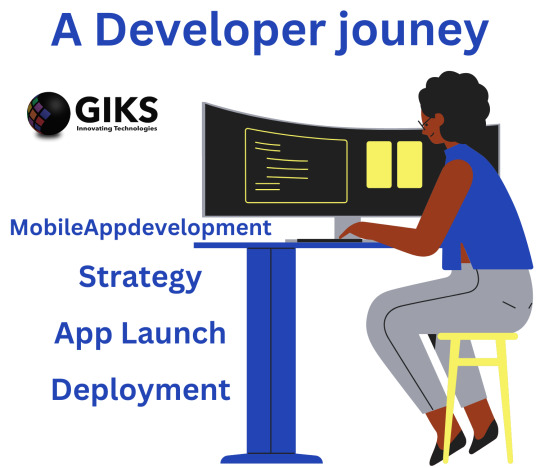
Embarking on Your Developer's Journey: A Step-By-Step Guide
The world of software development is a realm of endless creativity, innovation, and problem-solving. Whether you're just starting out or looking to transition into a tech career, embarking on your developer's journey is an exciting endeavor. From learning the fundamentals to mastering advanced concepts, this step-by-step guide will help you navigate the path to becoming a skilled developer.
Step 1: Define Your Path
Begin by clarifying your goals. Are you interested in frontend or backend development? Mobile apps or web applications? Defining your focus will guide your learning journey.
Step 2: Choose a Programming Language
Select a programming language aligned with your chosen path. For web development, consider languages like HTML, CSS, and JavaScript. For backend development, explore options like Python, Ruby, or Java.
Step 3: Learn the Basics
Start with the basics. Online platforms, coding bootcamps, and tutorials offer beginner-friendly resources to help you grasp programming concepts, syntax, and logic.
Step 4: Build Small Projects
Apply what you've learned by building small projects. These could be simple websites, calculators, or basic apps. Practice is key to solidify your understanding.
Step 5: Explore Frameworks
Frameworks simplify development. For web development, explore frontend frameworks like React or backend frameworks like Django and Ruby on Rails.
Step 6: Version Control with Git
Git is essential for collaboration and version control. Learn the basics of Git and platforms like GitHub to manage your projects effectively.
Step 7: Dive Deeper
As you gain confidence, delve into more advanced topics. Learn about databases, APIs, authentication, and other crucial concepts relevant to your chosen path.
Step 8: Solve Real-world Problems
Challenge yourself with real-world problems. Platforms like LeetCode and HackerRank offer coding challenges that enhance your problem-solving skills.
Step 9: Collaborate and Network
Join coding communities, forums, and meetups. Networking helps you learn from others, get feedback, and stay updated on industry trends.
Step 10: Build a Portfolio
Create a portfolio showcasing your projects. A strong portfolio demonstrates your skills and makes you stand out to potential employers.
Step 11: Seek Internships or Freelance Work
Apply your skills in real-world scenarios through internships or freelance work. Practical experience is invaluable for your growth as a developer.
Step 12: Keep Learning
Technology evolves rapidly. Stay curious and continue learning about new languages, tools, and trends to remain relevant in the field.
Step 13: Specialize
As you gain experience, consider specializing in a niche area like mobile app development, machine learning, or cybersecurity.
Step 14: Contribute to Open Source
Contributing to open-source projects enhances your skills, connects you with the community, and boosts your resume.
Step 15: Stay Adaptable
Adaptability is key in tech. Embrace change, continuously update your skills, and be open to learning new technologies.
In Conclusion
Embarking on your developer's journey requires dedication, perseverance, and a thirst for learning. Remember, every coder started as a beginner. By following this step-by-step guide, you'll lay a strong foundation for your growth as a developer. Stay curious, build, collaborate, and continuously improve – your journey has just begun.
For more information go to my blog website.
2 notes
·
View notes